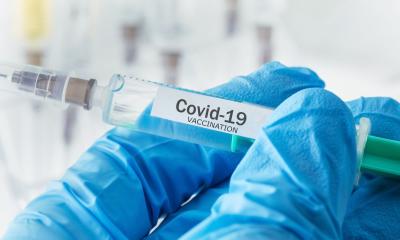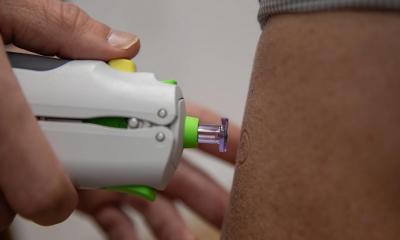Image source: Pexels/Karoline Grabowska
News • Rethinking recommendations
Delay between Covid-19 vaccine doses improves antibody response
A novel study published in AACC’s The Journal of Applied Laboratory Medicine shows that delaying the second Covid-19 vaccine dose for more than the recommended 3-4 weeks results in higher antibody levels.
This finding could play a vital role in shaping vaccine distribution strategies that increase access to the vaccine around the globe.
The Covid-19 vaccines are key to bringing the pandemic to an end, but many questions about them remain that researchers are still working to answer. For vaccines that require two doses, one of the biggest questions is how long people can wait to get the second dose. The U.S. has adhered strictly to the dosing regimen tested in clinical trials, which involves two doses of the Pfizer vaccine spaced 21 days apart or two doses of the Moderna vaccine spaced 28 days apart. On the other hand, countries such as Canada and the U.K. have adopted the strategy of delaying the second dose for up to 4 months in an effort to get the first dose to as many people as possible. However, it’s unclear what impact this delay has on vaccine efficacy.
From necessity to new insights
To shed light on this question, a team of researchers led by Vathany Kulasingam, PhD, of the University of Toronto, measured the antibody response of 49 individuals after they received two doses of the Pfizer Covid-19 vaccine. Surprisingly, the researchers found that the longer the second dose was delayed beyond the recommended 21-28 days, the higher the recipient’s antibody levels were. This finding runs counter to fears that postponing the second dose could undermine the vaccine’s performance. It also supports the public health strategy of delaying the second dose in order to get the vaccine to as many people as possible in as short a time as possible—a strategy that could be particularly helpful for countries facing vaccine shortages. “Presently, both mRNA vaccines are approved for use as a two-dose schedule given either 21 days or 28 days apart,” said Kulasingam. “However, with limited vaccine supply, public health officials [in Canada] have extended dose intervals for both Pfizer-BioNTech BNT162b2 and Moderna mRNA-1273 vaccines to optimize early vaccine rollout and population protection. In the current study, healthcare workers that had an extended period between their first and second dose of the Pfizer-BioNTech BNT162b2 vaccine had statistically significant higher antibody response.”
Source: American Association for Clinical Chemistry
04.08.2021











